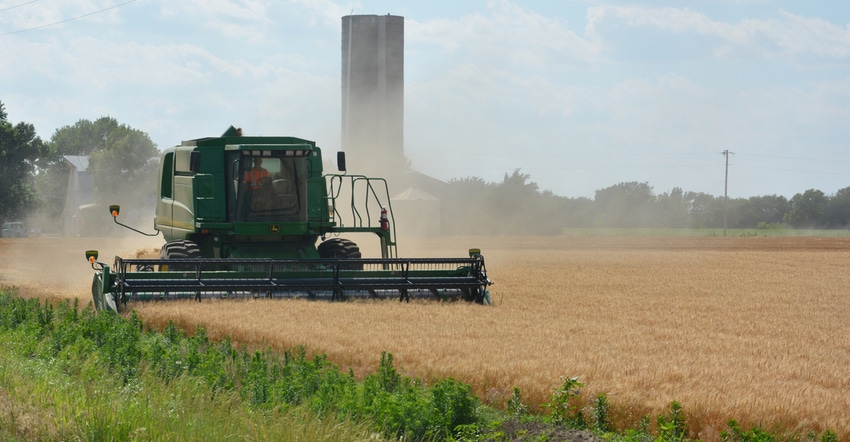
As farmers and commodity groups express relief that emergency help is coming their way, most are not happy to find themselves in a position where the aid is needed and would much rather have their old markets back and new ones being opened.
President Donald Trump has praised himself for his loyalty and devotion to "my farmers who are so great." Reality is, the ongoing and expanding trade war — with or without an emergency bailout for farmers — is not good for his farmers or anybody else’s.
Things have not been good in farm country for a while — no, prices have not been falling for "15 years" as the president has alleged repeatedly — but they certainly have for the last four years. Trade deals, however, have not been the problem.
Agriculture has been a clear beneficiary of trade deals, with exports of food and food products topping $140.5 billion last year — a sum that is hardly going to be replaced by a measly $12 billion in emergency aid.
Grain price declines since 2013 have been largely caused by good weather and abundant harvests. It’s not exactly a mystery that the highest prices came in 2012 and 2013, two of the worst Midwest drought years since the Dust Bowl. Trade deals, far from creating the problem, were responsible for moderating the decline in prices that resulted from recovery from drought and bumper harvests.
Yes, there are serious issues facing U.S. dairy producers. But they haven’t been created by unfair Canadian trade practices. Would dairy farmers welcome a wider market in Canada? You bet. But it is certainly something that can be addressed without impacting the whole range of NAFTA.
I point all this out because I have noticed a troubling trend in the days following the announcement of the aid package: Ag folks echoing the talking points that all of this is something we simply must suffer through in order to right decades of wrongs, and that the bailout for farmers is necessary to counter the "illegal" imposition of counter-tariffs by China and other trade partners.
I can’t quite see why it is legal, necessary and good for the president to impose huge tariffs on goods from other countries but it's suddenly illegal when those targeted countries respond in kind. Why would their retaliatory tariffs be any more illegal than our original ones? Would it be legal to walk up to an adversary on the sidewalk and punch him in the nose, but then suddenly become illegal for him to punch you back? To me, that’s a valid question.
This is not to say that some work doesn’t need to be done on trade agreements. NAFTA is three decades old and needs some tweaks. China takes advantage of any opportunity to steal innovation secrets, and we need a unified effort to stop the intellectual property theft. Neither of those situations required plowing up the whole field to get rid of a single pigweed.
We have amazingly good, strong, savvy trade promoters and negotiators in the ag ranks. You won’t find more knowledgeable people anywhere than the check-off organizations across the ag industry that have been fighting to open markets for decades.
These are top-notch people supported by local producers across the United States who spend their own money and time, leave their farms behind, and give their talents and their ideas to the good of the industry. How about we ask them before we start trade wars?
So yes, Mr. President, farm country does appreciate a little help handling the ongoing crisis in commodity prices. For some, it will mean the difference between planting a crop next year or selling the farm. It buys a little more time. But what we need is a real solution — the opening of new markets, with new free trade agreements.
If you want to make "your" farmers really happy Mr. President, start making some deals.
About the Author(s)
You May Also Like




